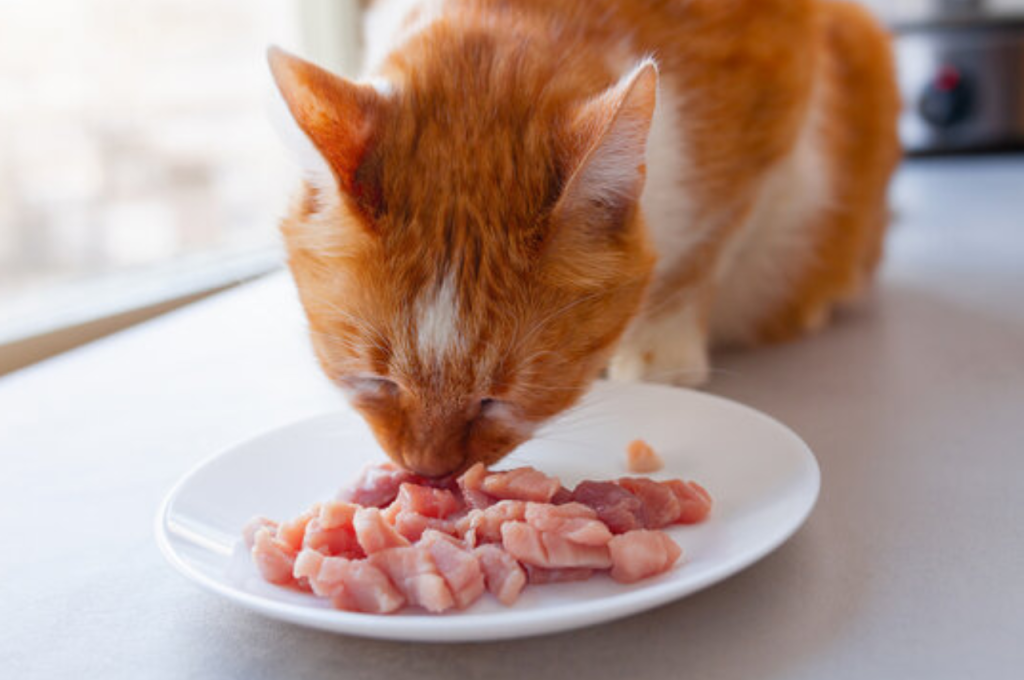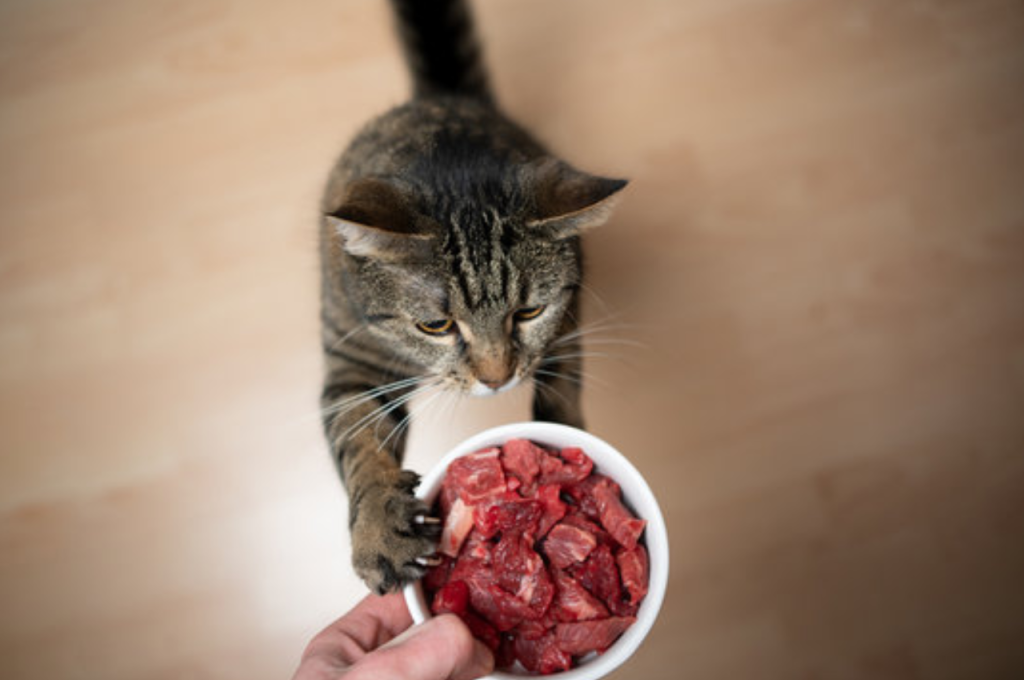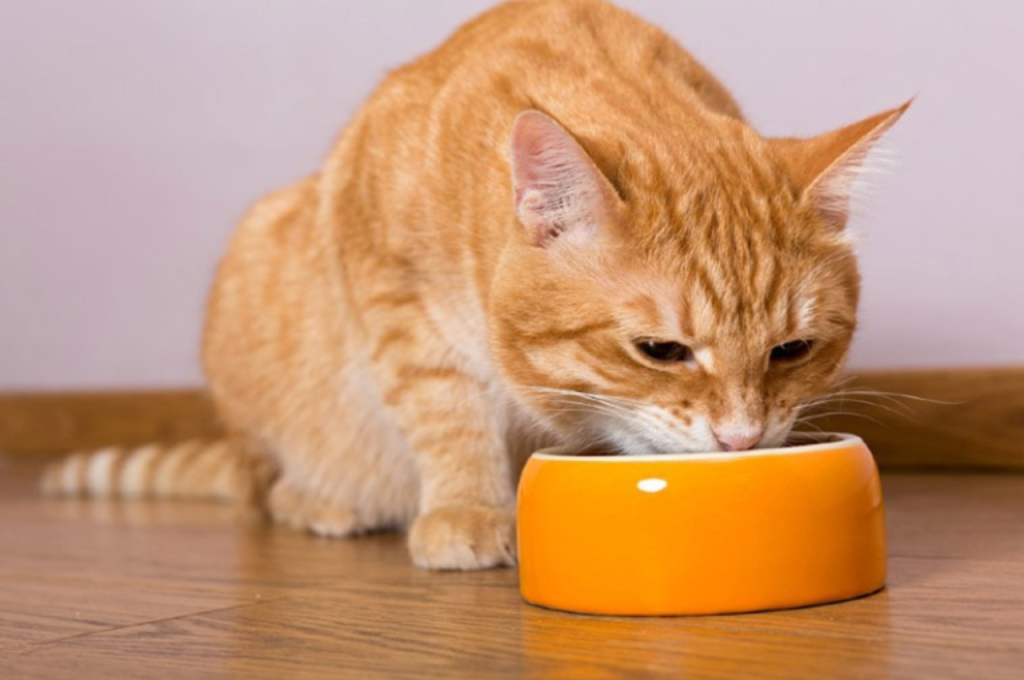Any meat is bad for cats, as it can lead to health issues and nutrient imbalances. Cats have specific dietary needs that are best met through a balanced and complete cat food diet.
Feeding them human-grade raw meat or cooked meat can cause digestive problems, nutritional deficiencies, and even foodborne illnesses. It is crucial to consult with a veterinarian to ensure your cat’s diet meets all their nutritional requirements for optimal health and well-being.
Types of Meat for Cats
Cats are obligate carnivores, meaning they require a diet rich in animal protein to thrive. When it comes to including meat in a cat’s diet, it’s essential to consider both safe options and potentially harmful choices.

Safe Meat Options for Cats
- Chicken
- Turkey
- Rabbit
Chicken, turkey, and rabbit are commonly recommended meats for cats as they are lean sources of protein that are easily digestible for felines.
Potentially Harmful Meat for Cats
- Pork
- Raw Fish
- Lamb
Pork, raw fish, and lamb can be potentially harmful to cats due to high levels of fat or certain enzymes that may not sit well with a cat’s digestive system.
Nutritional Requirements for Cats
Cats are obligate carnivores, which means that their bodies are designed to thrive on a diet primarily composed of meat. As a cat owner, it is crucial to understand the nutritional requirements of your feline companion to ensure their optimal health and well-being.
Protein Needs for Cats
Proteins are the building blocks of life, and they play a vital role in a cat’s diet. Being obligate carnivores, cats have a higher protein requirement compared to other animals. They need amino acids, the components of proteins, to support growth, repair body tissues, and maintain overall good health.
Protein should constitute a significant portion of a cat’s diet. A lack of sufficient protein in a cat’s diet can lead to various health issues, including muscle wasting, weakened immune systems, and poor coat quality. To meet their protein needs, cats rely on high-quality animal-based proteins, such as chicken, turkey, and fish.
Essential Nutrients for Cats’ Health
While protein is a crucial nutrient for cats, it is not the only one they require for optimum health. Cats also need certain essential nutrients in their diet to thrive. These include:
- Vitamins: Cats need vitamins, such as vitamins A, B, D, and E, to support proper growth, strengthen their immune system, and maintain healthy skin and coat.
- Minerals: Essential minerals like calcium, phosphorus, and magnesium are necessary for strong bones, teeth, and overall body functioning in cats.
- Fatty Acids: Omega-3 and omega-6 fatty acids are essential for a cat’s overall well-being, including promoting healthy skin, improving coat quality, and supporting brain function.
- Taurine: Taurine is an amino acid that cats cannot produce on their own. It is crucial for their heart health, vision, and reproductive function.
Providing a balanced and complete diet that contains all these essential nutrients is vital to ensure that your cat stays healthy and thrives.
Effects of Different Meats On Cats
When it comes to their diet, cats thrive on meat-based nutrition. However, not all meats are created equal when it comes to their effects on cats. It is important to understand the impact of different meats on your feline friend to ensure they are getting the right nutrients for optimal health.

Impact of Red Meat On Cats
Red meat, such as beef or lamb, can be a good source of protein for cats. However, it should be served in moderation to avoid excessive intake of saturated fats and potential digestive issues.
Benefits of Poultry for Cats
Poultry, including chicken and turkey, is a lean protein that can benefit the overall health of cats. It provides essential amino acids and is easily digestible, making it a preferred choice for feline diets.
Meat Alternatives for Cats
Many cat owners wonder if their feline friends must consume conventional meat. While cats are obligate carnivores, meaning their diet should primarily consist of meat, some meat alternatives can also be beneficial. Let’s explore the options for plant-based and commercial cat food alternatives for cats.
Plant-based Diet for Cats
Plant-based diets for cats involve providing nutrients from sources other than animal meat. While cats require certain amino acids, such as taurine and arginine, which are typically found in meat, these can also be obtained from plant-based sources like supplements and specially formulated commercial cat foods that meet their nutritional needs.
Commercial Cat Food Options
Commercial cat food options catering to cats’ dietary needs include plant-based formulas that contain essential nutrients. These formulas are formulated to provide a balanced diet that meets the unique nutritional requirements of cats. When choosing commercial cat foods, ensure they are specifically labeled as being suitable for cats and are nutritionally complete.
Health Risks Associated With Poor Diet
When it comes to the health of our feline friends, diet plays a crucial role. Providing cats with a balanced and nutritious diet is essential for their overall well-being. However, feeding them a poor diet can lead to various health risks and complications. In this article, we will discuss some of the common health risks associated with a cat’s poor diet, focusing on the subheading: Health Risks Associated with Poor Diet.
Obesity in Cats
One of the major health risks that a poor diet can contribute to in cats is obesity. Just like humans, cats can become overweight when they consume more calories than they burn. Feeding cats excessive amounts of high-calorie and fatty foods can lead to weight gain and obesity.
Obesity in cats can have detrimental effects on their health. It can put extra strain on their joints, leading to arthritis and other mobility issues. Additionally, overweight cats are more likely to develop diabetes, heart disease, and respiratory problems. It’s crucial to maintain your cat’s weight within a healthy range to prevent these health issues.
Digestive Issues Caused By Improper Diet
A poor diet can also lead to various digestive issues in cats. Cats are obligate carnivores, which means their bodies are designed to thrive on a diet primarily consisting of meat. When cats are fed an improper diet that lacks essential nutrients, it can disrupt their digestive system.
Some common digestive problems that can arise from a poor diet include constipation, diarrhea, and vomiting. Cats require a diet that is rich in animal protein, vitamins, and minerals to support their digestive health. Feeding them commercial cat food that is formulated to meet their nutritional needs is the best way to ensure a healthy gut.
Consulting A Veterinarian
Making informed decisions about your cat’s diet is crucial for their health. When considering whether any meat is bad for cats, consulting a veterinarian is essential.
Importance of Vet Consultation
Consulting with a veterinarian ensures tailored advice for your cat’s specific needs. Vets can guide appropriate dietary requirements based on your cat’s age, size, and health status.
Customizing Diet for Individual Cats
Each cat has unique dietary requirements that should be addressed through personalized nutrition strategies. Consulting a vet helps in customizing the diet to suit your cat’s individual preferences and health conditions.

Conclusion
To ensure the well-being of our feline friends, it’s crucial to understand their dietary needs. While cats are obligate carnivores, not all types of meat are suitable for them. High-quality, balanced diets, specially formulated for cats, should be prioritized. Avoiding common allergens and consulting with a veterinarian will help address any specific dietary concerns for our beloved pets.
Remember, a carefully chosen diet plays a vital role in maintaining their overall health and happiness.
